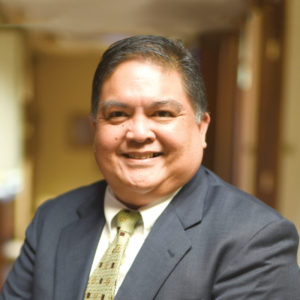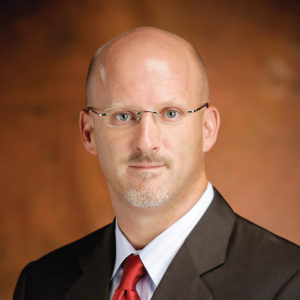By Nicole B. Benavente
The wealth and management of wealth in the region varies depending on age, an individual’s goals and his or her tolerance for risk. The baby boomer generation — born between 1946 and 1964 — are either in or nearing retirement. A transfer of wealth and assets is expected as many of them plan to leave inheritances to the next generation. Ensuring that their assets are transferred within the best legal and financial structures — the right family trusts and accounts — should be a priority so that unnecessary amounts of wealth are not lost across generations to taxes, irresponsibility or neglect.
Concurrently, a new generation of professionals climbing the corporate ladder is considering ways to manage debt and start investing. One way they can start investing is in real estate. Thanks to ever-evolving technology, a popular albeit controversial type of cryptocurrency called Bitcoin has gained attention on Guam and promises a revolutionary way to invest.
Guam Business Magazine conducted an Anonymous Assets Survey of company presidents and CEOs in the region regarding their wealth, investments and assets to learn more about how wealth is managed in the Mariana Islands.
Of the respondents, 44% have an annual salary of $100,000 to $200,000, 26% less than $100,000, 18% between $200,000 to $300,000, 8% between $300,000 to $400,000, 2% responded $500,000 and 2% declined to answer that question.
The results also indicated that 80% of respondents have an investment portfolio. Excluding their primary residences, 68% own more than one additional property, 16% own one additional property and 16% do not have property. Aside from property, respondents listed the following assets: 79% of respondents own a vehicle, 7% own a boat, jewelry and/or camera equipment and 14% list major investment assets, such as hotels.
With these results in mind, Guam Business reached out to major players in finance to provide feedback, update movement in investment and relay best practices in wealth management.
GBM: What constitutes a good spread of investment, and how can people construct an investment portfolio that has the highest possible chance of meeting their goals?
Joe M. Arnett, tax advisor, Deloitte & Touche LLP: The diversity of any investment portfolio in my mind starts with an assessment of risk. How much risk can an individual comfortably assume and sleep soundly at night? Once the risk parameter is set, an individual can look for those opportunities that satisfy his or her risk tolerance. It is often efficient to start with those things an individual has some knowledge and interest in. Of the survey respondents, I would guess their first investment option would be their businesses. Secondly, they should start with things they observe routinely or know something about. Investments of any kind take time to manage. The more you know, the easier they are to manage.
Christopher K. Felix, president and principal broker, Century 21 Realty Management Co. Inc.: This really depends on their goals and willingness to risk. The younger investors should be investing in more long-term real estate investments with plans to sell in five to 10 years. This would be more in the lower and middle-end of small apartments — like four- to 10-unit apartment complexes and lower-end condominiums. They should be looking at both rates of return and value growth of their investments. As they get nearer to retirement, this should shift to shorter-term investments and more upper-, middle- and executive-level condominiums or apartments. They should focus more on rate of return than value growth as they enter their retirement or near retirement years. They also should focus on more safe investments with lower risk.
David J. John, president, ASC Trust Corp.: The process of determining which mix of assets to hold in your portfolio is a very personal one. The mix that’s right for you won’t be the same as the one that suits your neighbor or your co-worker or even your best friend. A good start to finding an asset allocation that’s right for you is to look at three key things: your time horizon, your risk tolerance and your overall goals. Determining your time horizon is straightforward — it’s the amount of time you have left to invest before you’ll need your money. An investor who doesn’t need the money for 20-plus years — an example would be for retirement — may feel more comfortable taking on more risk because there’s time to recover from the inevitable ups and downs of our markets. However, saving for a teenager’s college education or even an emergency fund, an investor would likely take on less risk because of the shorter time horizon. Working with an advisor will help bring the pieces together that makes the best financial sense for you.
GBM: How would you describe investment activity as a reflection of investor confidence and preference at the moment?
Arnett: It appears investor confidence is beginning to pick up somewhat. This, in my opinion, is driven by the prospects of expansion and improvement of the U.S. Department of Defense spending in Guam. It is also shaped by the growth in the tourism industry over the past few years. There is room for caution based upon the shortage of qualified workers and the increased cost of construction.
Felix: Most real estate investors I am dealing with are very confident in Guam’s real estate future and in both increase in rental income and increase in value as we enter the beginning of the military buildup stages. Their preferences seem to be more in the executive level and large commercial or industrial-type investments depending on their familiarity and confidence in these markets.
GBM: How important are other aspects of wealth management besides investment, such as asset and income protection, debt management and estate planning?
Arnett: Asset and income protection become more important as a portfolio grows and as we age. The judicious use of debt is the result of experience and hard work. Establishing a desired standard of living at retirement is an important goal to establish at any point in one’s career. Wealth transfer issues and estate tax planning is an exercise that should be completed early and revisited every year.
Felix: Again, as the investor nears his retirement he should become more conservative in his real estate investments and make sure they are safe and easy to sell (liquidate). Unfortunately, this also usually lessens their rate of return.
 Sinforoso M. Tolentino, attorney, Camacho Calvo Law Group LLC: Asset and income protection planning, debt planning, estate planning and for some people business succession planning are important aspects of wealth management. Income and asset protection planning and debt planning help address current needs. Business succession planning and estate planning help plan for the future. A well-thought-out estate plan not only addresses the transfer of property when you die, but it also helps plan for your personal care and management of your estate if you become sick or incapacitated.
Sinforoso M. Tolentino, attorney, Camacho Calvo Law Group LLC: Asset and income protection planning, debt planning, estate planning and for some people business succession planning are important aspects of wealth management. Income and asset protection planning and debt planning help address current needs. Business succession planning and estate planning help plan for the future. A well-thought-out estate plan not only addresses the transfer of property when you die, but it also helps plan for your personal care and management of your estate if you become sick or incapacitated.
 Sandra H. McKeever, president of Asia Pacific Financial Management Group: Our island’s families will experience a transition of wealth and assets as more and more baby boomers edge toward retirement. Unfortunately, approximately 70% of family wealth disappears when it’s distributed across multiple generations. There are many reasons to explain why. Statistics say distribution fails because most families don’t have the ability to make joint decisions or can’t make a system work with multiple stakeholders. To stack the odds in your favor, you’ll need to bring people together, learn each other’s habits and quirks and create a strong family unit even as the dynamics change through births, deaths, divorces and second marriages.
Sandra H. McKeever, president of Asia Pacific Financial Management Group: Our island’s families will experience a transition of wealth and assets as more and more baby boomers edge toward retirement. Unfortunately, approximately 70% of family wealth disappears when it’s distributed across multiple generations. There are many reasons to explain why. Statistics say distribution fails because most families don’t have the ability to make joint decisions or can’t make a system work with multiple stakeholders. To stack the odds in your favor, you’ll need to bring people together, learn each other’s habits and quirks and create a strong family unit even as the dynamics change through births, deaths, divorces and second marriages.
GBM: What are the best ways to utilize tax-advantaged investment vehicles and methods of tax avoidance?
Arnett: The analysis of the net after-tax return from tax advantaged investments and tax avoidance strategies should be done over several years. Tax advantaged investments require an investment of cash. The availability of sufficient cash and the other needs for it over the investment time period need to be considered as well as the net after-tax return.
Felix: Real estate is and remains one of the few investments that offer some tax shelters. Capital gains, mortgage interest deductions and expenses of repairs and maintenance offer tax shelters and havens. I understand even in the new tax laws these will remain.
John: One convenient way to get a tax deduction is to sign up for your company’s 401(k) or similar retirement plan. Contributions made to these retirement accounts have the effect of reducing that individual’s total taxable income. The employer is also afforded significant tax advantages if the plan meets specific criteria. Those who don’t have access to these types of plans have the option to contribute to an Individual Retirement Account. There are two basic types of IRAs: Traditional and Roth. Each has specific tax advantages and requirements that you’ll want to become familiar with before contributing.
GBM: What factors should investors consider regarding “cryptocurrency” right now?
Arnett: Caution. I do not thoroughly understand the business proposition given the risk. It is a cutting edge currency exchange technology that is unregulated and evolving. There have been spectacular gains and sudden losses in value. Any investor needs to thoroughly study this new currency exchange platform and become comfortable with the process.
Felix: This is not a real estate matter, but personally this scares me as there is no value backing these currencies. Like the tulip crash, I am afraid of a total crash and loss of investments. I would make sure my investments in this area are with excess and “free” money and not needed investments or savings.
John: Before deciding on investing in the cryptocurrency market, carefully consider your investment goals and your overall tolerance for risk. It is imperative that you do not invest money you cannot afford to lose. Cryptocurrency is considered a speculative investment; the potential for growth is unlimited and potential for loss is total. Invest using only discretionary income or capital.



















